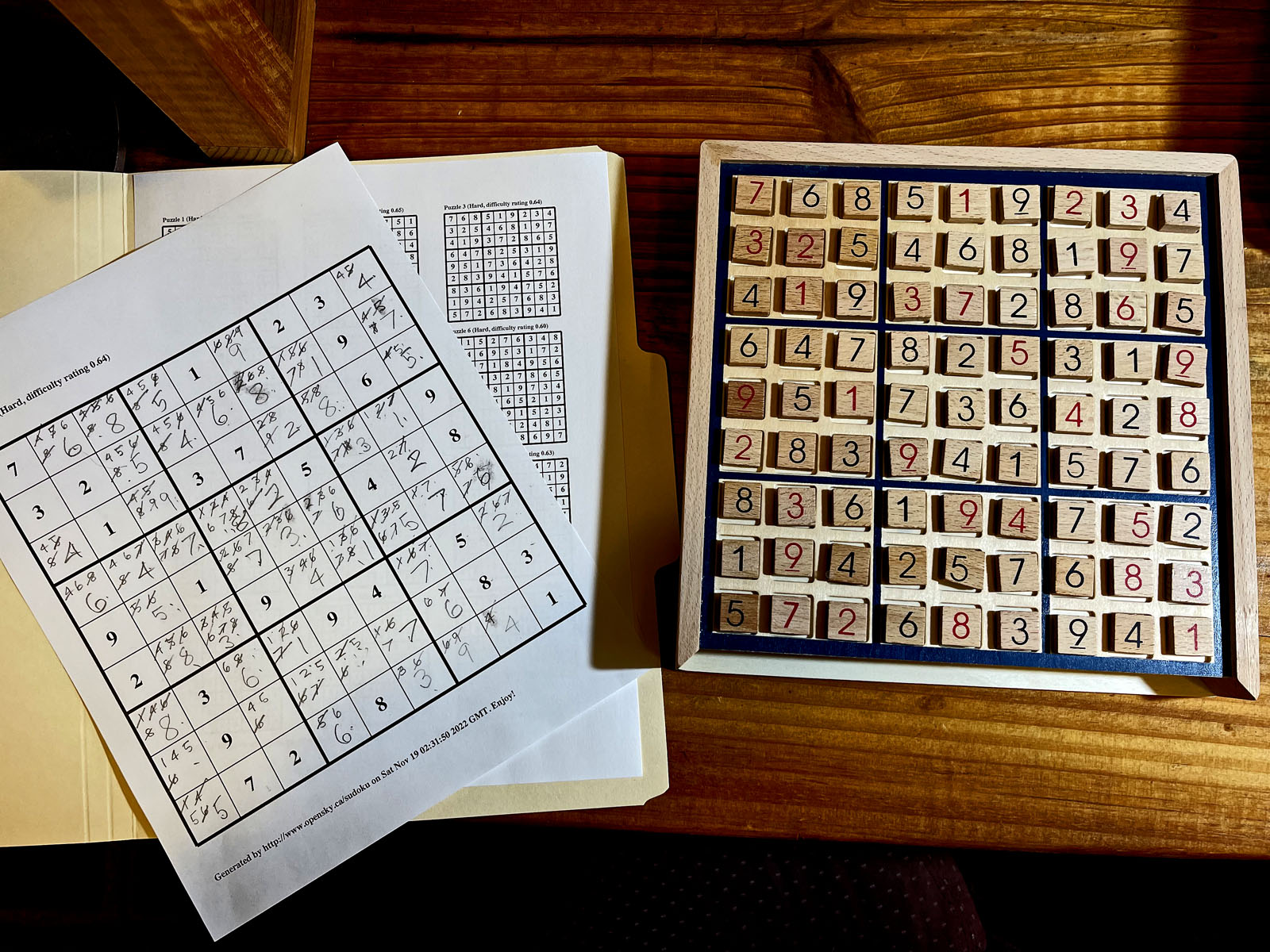
In a few days, I’ll turn 74. And though I don’t feel my memory or logic circuits slipping, I don’t want them to slip. I read an article recently that mentioned something that I should have known but didn’t know. Reading fiction is very good exercise for the memory, because one has to remember at the end of the book what happened at the beginning. The article said that, when older people start to give up on reading fiction, that’s an indicator that memory problems may be developing.
But what about our logic circuits?
Sudoku was a major craze ten or twelve years ago. I didn’t pay much attention, because I’ve never been all that interested in games. But now that I’m no spring chicken I wanted a game that requires logical deduction as a supplement to the memory exercise of reading fiction. Sudoku seemed to be the right choice. I also wanted to spend less time sitting in front of the computer, and Sudoku can be played with old-fashioned pencil and paper. I did a few Sudoku games with the computer just to learn the rules, but playing Sudoku on a computer felt like cheating, because you get immediate feedback on whether you’re right or wrong when you place a number.
The problem with paper, though, is that one’s worksheet can get cluttered and messy. Sudoku is not really a board game, but I quickly found that a board helps keep order. Part of the challenge is to keep one’s paper worksheet and the board in sync. Another part of the challenge is to never make a mistake. Double-checking one’s work and getting it right the first time is much easier than finding and backing out of a mistake.
Much has been written about the theory of Sudoku, and one question in particular interests me. That question is: Is it ever necessary to guess, or to apply probabilities, in Sudoku? Most sources says no, that Sudoku puzzles can always be solved using only logical deduction. I would like to be convinced that that is true. And so far, though I’m a Sudoku novice, I have found that it is true. That’s excellent, because guessing would very quickly make a mess of things because of the necessity of backing out of a wrong guess — easy to do on a computer, not easy with pencil and paper.
As for reading fiction, knowing that it’s an excellent exercise for the memory is a tremendous bonus. And my focus of late on the novels of Sir Walter Scott is probably as good as it gets, because the novels are long and very dense. Details that seem unimportant in the first part of the novel are discovered to be critically important when Scott finally unwinds everything at the end.
There are many sources online for Sudoku puzzles. I used the OpenSky Sudoku Generator to create a PDF file with a bunch of hard puzzles. You also can generate easy puzzles and “very hard” puzzles. The puzzles are meant to printed out on letter size paper and solved with pencil and paper.
I need one more tool: Colored pencils to help keep order on the worksheet.

Do you still take Huperzine David ? I remember your post from some years ago. Best wishes for your birthday too 🙂
Hi Chenda: I haven’t taken Huperzine for a while… Thanks for reminding me; I still have some. The main downside of Huperzine was the crazy dreams! Sigh, another birthday, and thank you… 🙂